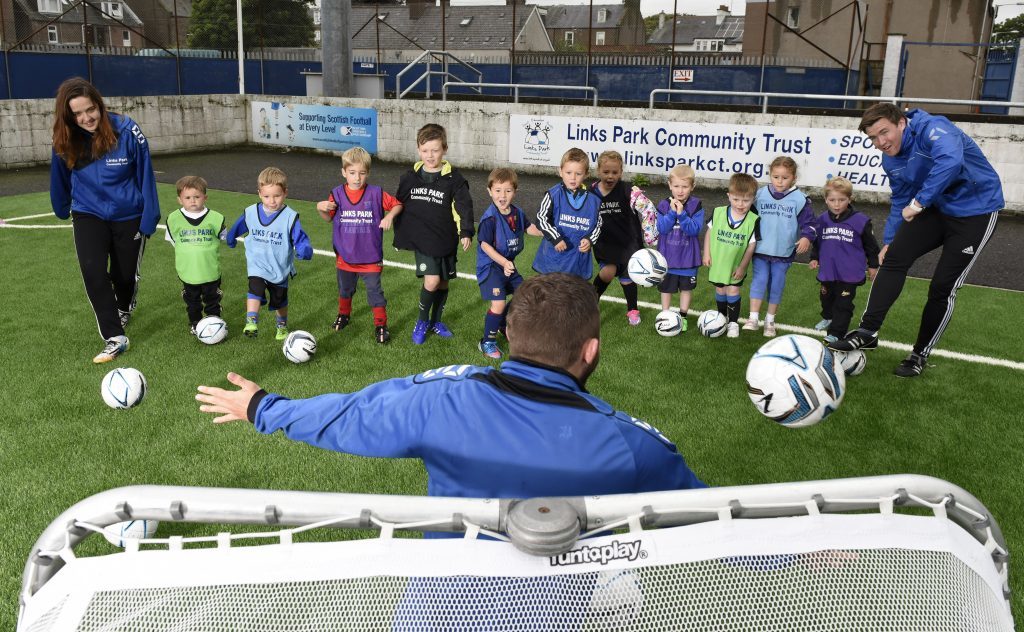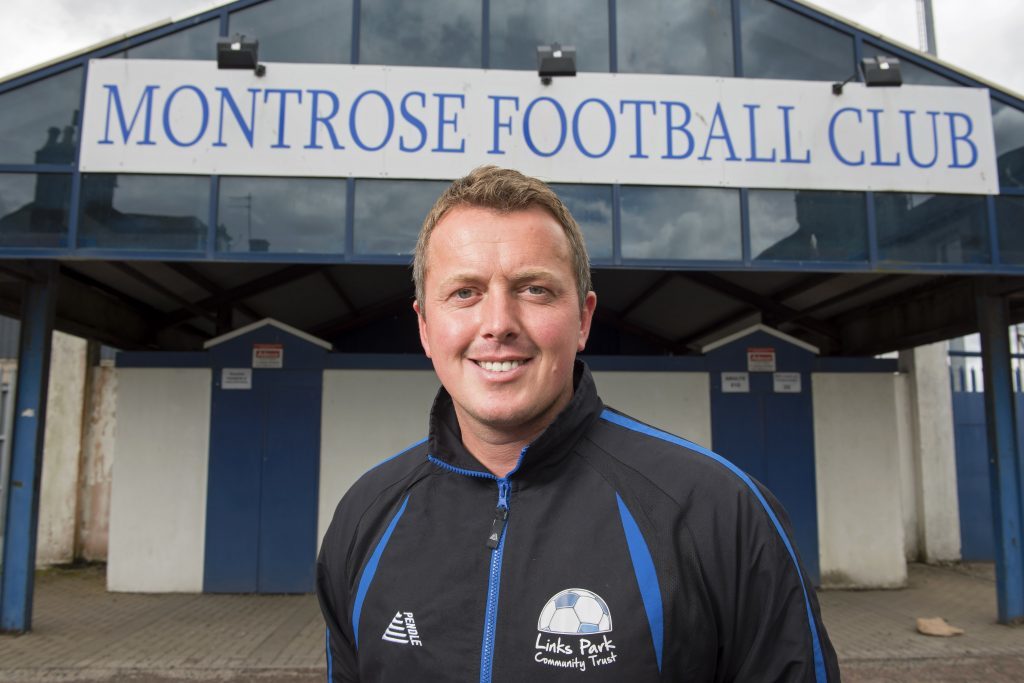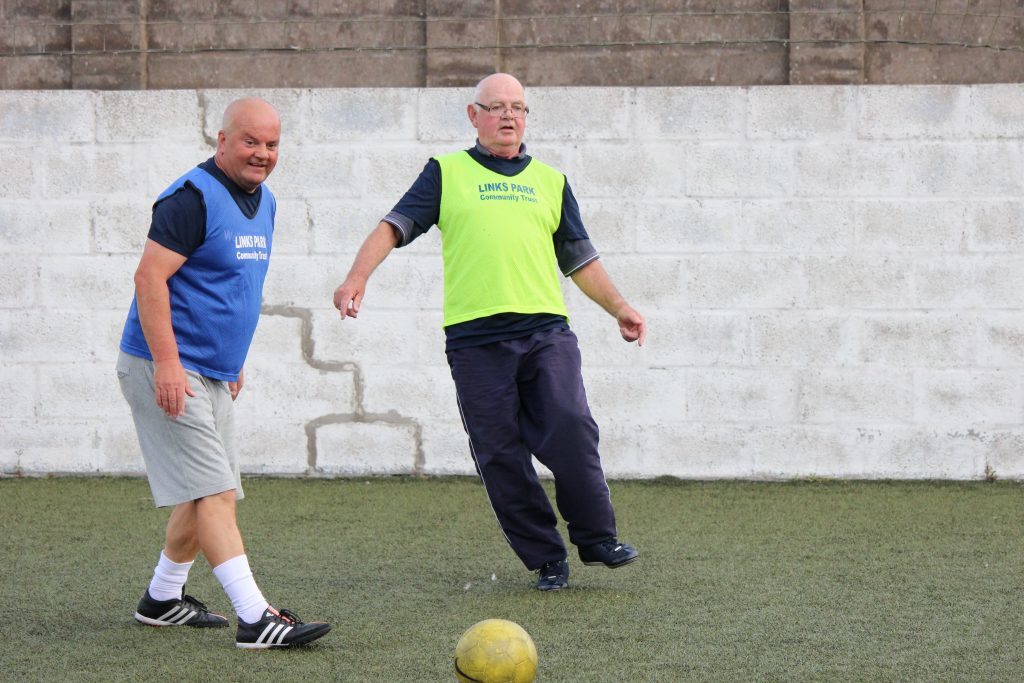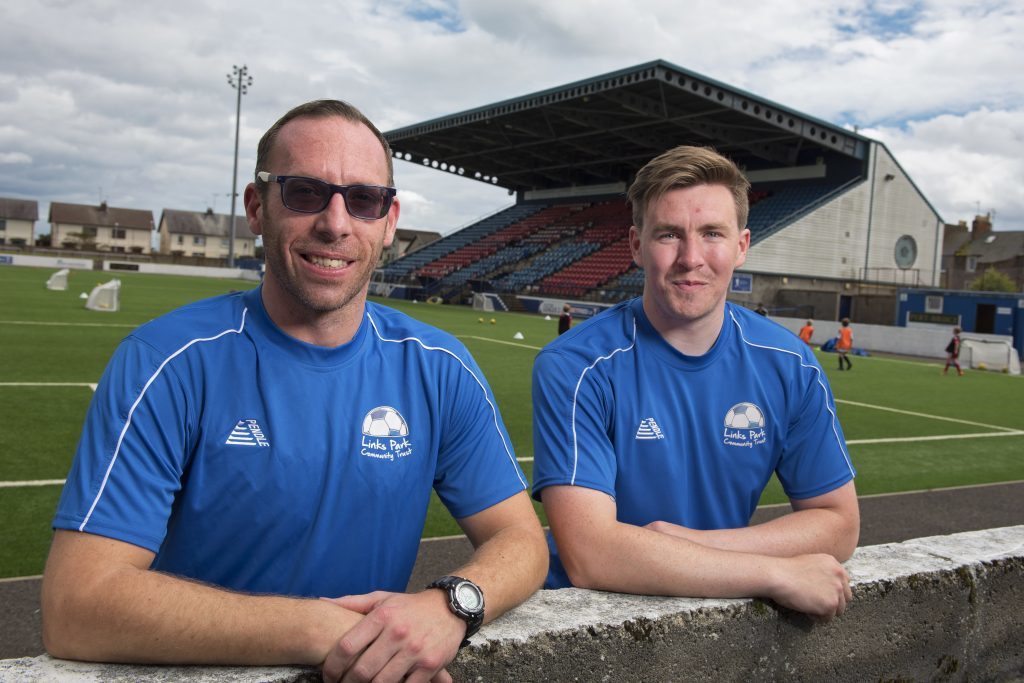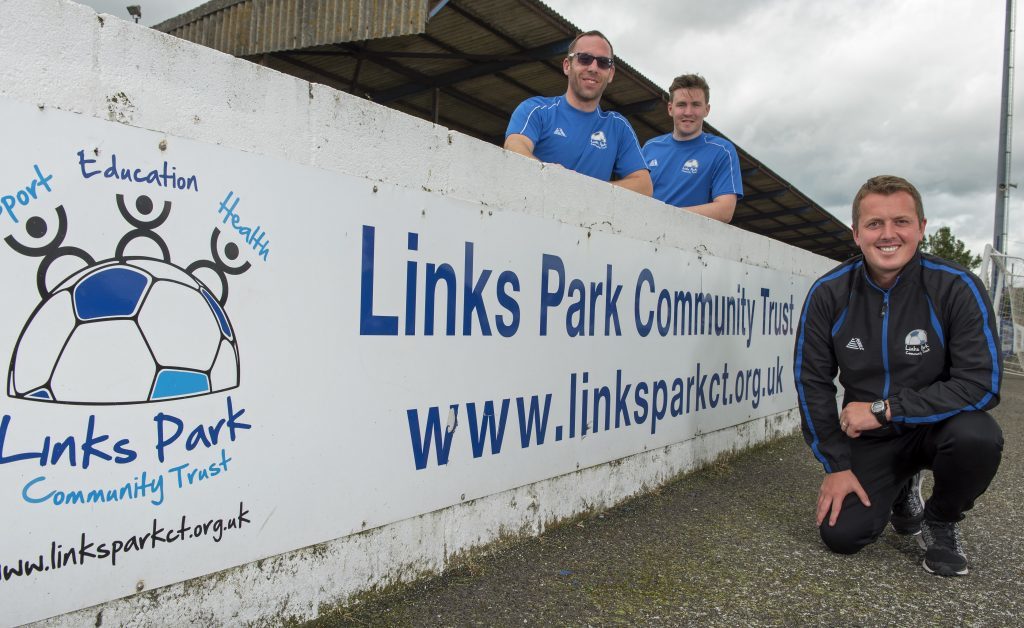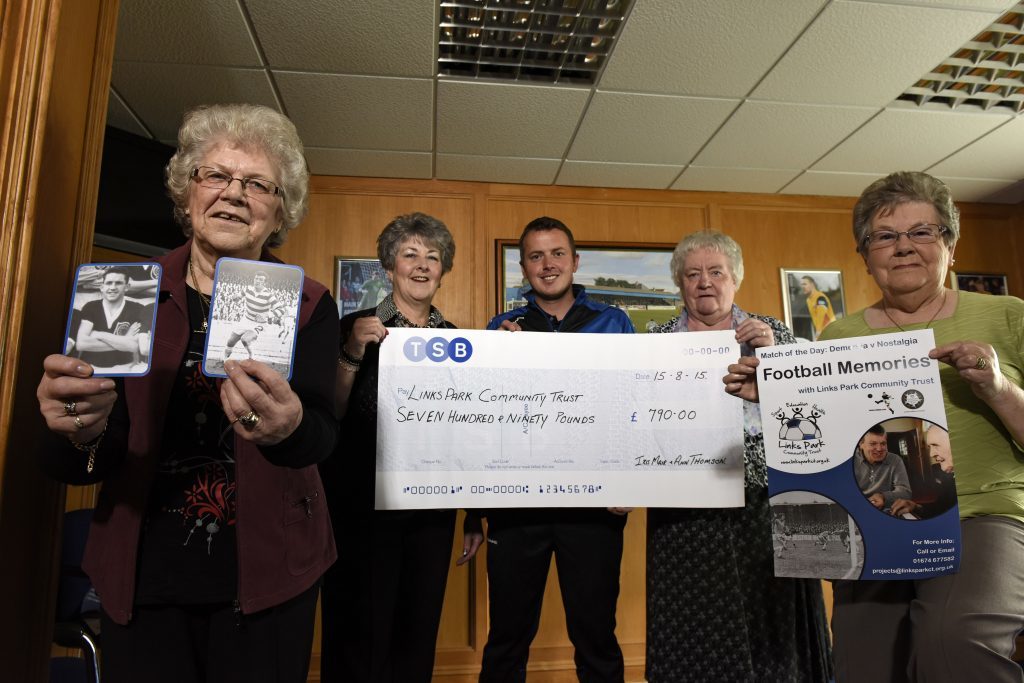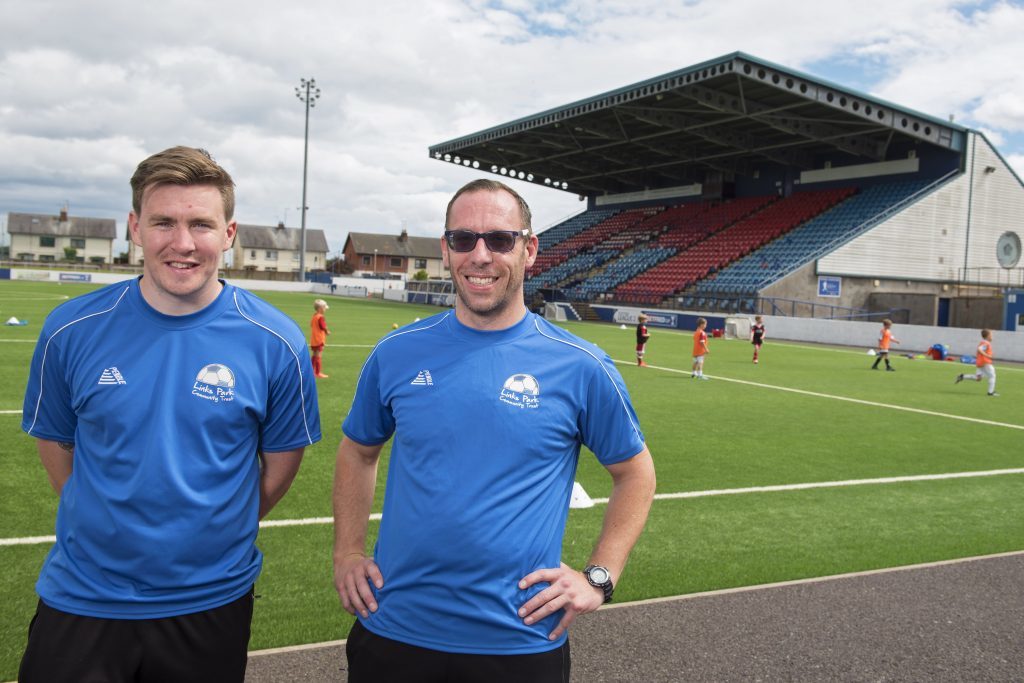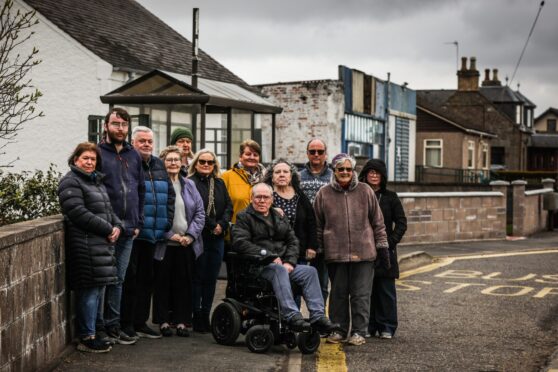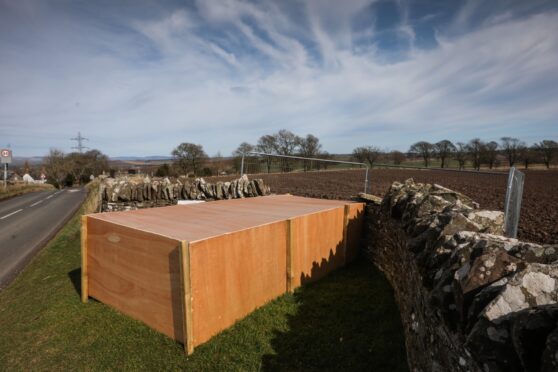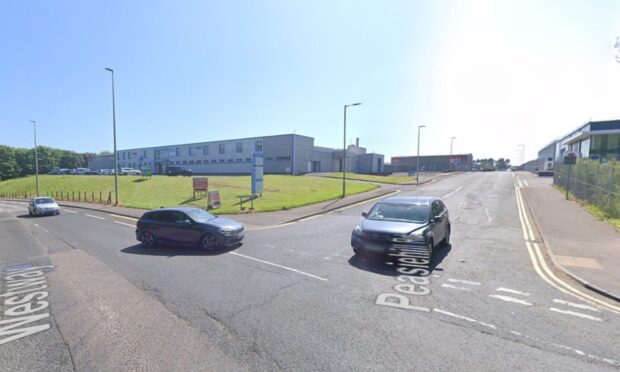Sport, education and health are at the heart of pioneering work being carried out by the Links Park Community Trust in Montrose, Michael Alexander discovers on a visit to the project.
Former Montrose Academy pupil Peter Davidson has experienced the highs and the lows of Scottish football both on and off the field.
The former Brechin City player, who gave up playing at an early age to pursue a non-playing career in the game, moved from his role as a sports lecturer at Inverness College to become Head of Sports Science at Inverness Caledonian Thistle Football Club.
He was part of Craig Brewster’s management team which took over the reins at Dundee United following manager Gordon Chisholm’s sacking in 2006.
After being paid off at Tannadice under Brewster’s replacement Craig Levein, Peter had a few jobs thereafter working for sportScotland.
But it was a burning desire he had to set up a community football project and target social inequalities at the heart of his home town of Montrose which has fuelled his passion since.
In 2011 he proposed the concept of the Links Park Community Trust to a few influential locals, and in the four years since launching in 2012, most of those he spoke to have gone on to become trustees.
From working with youngsters who might otherwise be tempted to take a step on the road to drink and drugs, to working with pensioners suffering dementia, the independent charity has developed an extensive range of innovative award-winning programmes and now engages with well over 1000 people per week ranging in age from 18 months old up to 96.
It’s been a remarkable journey and Peter’s enthusiasm and passion for the project is evident as we catch up at Montrose FC’s Links Park stadium where the trust is based.
“We aim to use the power and widespread appeal of sport and in particular football to positively influence change in the community,” explains project manager Peter, 35, as we watch a children’s summer camp activity programme under way on The Gable Endies’ 3G artificial pitch.
“And that’s across three areas of work – sport, education and health.
“We firmly believe that football is one of, if not the best training ground, to support children and help develop the life skills required for learning and work.”
The youngest participants on the trust’s sport programme take part in the Links Park Mini Dribblers.
But the trust also has a very strong Walking Football programme where men in their 70s play the beautiful game at a pace more suitable for them. In fact Links Park Community Trust are the current Scottish Walking Football Champions and will travel to England for the UK championships in November. It was also the first organisation in the UK to offer Walking Football for women.
The trust, funded by charities including Comic Relief, also delivers football for every age in-between and is proud of the fact they are able to utilise Montrose FC’s facilities and develop their skills from some enthusiastic staff.
What Peter is most proud of, however, are the community benefits away from sport tackling inequality issues such as mental health and well-being, social isolation and obesity. The trust also aims to make it accessible and affordable to all through the absence of a set-fee, instead asking merely for a suggested donation.
“I think what’s so exciting is the different areas in which we work, “continues Peter, a father-of-two football-daft boys who also runs a training company with his wife.
Mental health
“For example, mental health and well-being – we go into Stracathro Hospital and work with inpatients behind locked doors. Our project officer Andrew Westcott goes in and works with people there. The stats coming back from the health professionals is not only are you having a great impact on the patients but also on the fellow-patients and staff because of their mood in the hours delivering that football session.
“We also work closely with the police. The local community police officer says that since we went out and started working on Friday nights, the number of calls related to anti-social behaviour in Montrose has dramatically reduced.
Working closely with each of the six Montrose primary schools, the trust cites education as one of its central aims. Project officer Logan Cruickshank leads on the community sports programme, and Peter is very appreciative of the enthusiastic team of staff.
A health trail has been developed for P1s, a numeracy trail for P3s and a literacy trail for P5s which sees youngsters take on role play whether it be as a new signing in the board room or a sports reporter asking those key questions. The P7 trail focuses on science and explores topics such as friction on the 3G pitch.
Peter adds: “As a player in the mock press conference, the P5 youngsters for example have to speak with clarity and enthusiasm. It’s all linked to life skills and employability later in life. Some of the testimonials from teachers is that they just can’t get some of their pupils to speak with that enthusiasm and clarity and expression. It’s because they are that ‘new signing’ for Montrose FC, it’s bringing out the best in them!”
The efforts of the Links Park Community Trust have not gone unnoticed. It was nominated for Education Scotland’s Transforming Lives Through Partnerships award and won the Excellence Award at an Angus Council Partnership Recognition Event for its work in raising attainment and achievement through its innovative educational programmes.
Beating heart
Scottish Football Association chief executive Stewart Regan says: “Links Park Community Trust have demonstrated how a football club can become the beating heart of its local community. Working with Montrose FC, the trust has established strong links with the local authorities, not just the council, but health and education partners too. This has enabled them to deliver innovative programmes to children and adults alike covering areas such as numeracy and literacy as well as a range of initiatives to ensure local people are being as active as possible. Their work is really inspirational and I comment them for leading the way.”
The trust also sits at the top table of the European Football for Development Network (EFDN) alongside clubs such as Manchester United, AEK Athens, Inter Milan, Club Bruges, Everton and Tottenham – an achievement which Peter Davidson describes as “just phenomenal”.
Hubert Rovers, chief executive of the EFDN, says: “Football has the power to positively influence change and LPCT’s membership of the EFDN demonstrates their commitment to share their good work, but also to learn from others in this field and where appropriate, replicate such good work in their own community.”
Phenomenal
Peter adds: “Other clubs such as Rangers, Morton and Aberdeen have community trusts, and they are all great in their own way. But what’s different here is the impact we are having with well over 1000 participants in a town of just 11,000. We won’t solve all the town’s problems but we are reaching so many sections of our community due to the range of programmes. It’s quite phenomenal.”
With an ageing population, perhaps one of the most emotive projects embarked upon by the Links Park Community Trust is its Football Memories reminiscence sessions held in the home dressing room at Links Park.
Trained staff and volunteers spend time with people who have dementia and also have an interest in football.
Participants walk down the touchline, up the players’ tunnel and enter the dressing room decorated with old football strips, programmes and other football memorabilia with the smell of Bovril also supporting the attempts to ignite memories of players, teams and matches gone by.
Impact
The project has had a big impact and shown great success in various participating clubs across Scotland. And now that success is being recreated at Links Park.
“Perhaps the most famous quote by a woman elsewhere in the country was when she described how she drives a sad old man with dementia to her local Football Memories session and then drives home with her husband, “explains Peter.
Andrew Westcott, the project officer responsible for the trust’s health and employability programmes, said the Football Memories programme relies on an understanding of how participants are feeling.
For football-minded men living with dementia, who perhaps can’t remember what they had for lunch let alone their journey to the stadium, the results can be “spectacular”, he says.
“Show them a picture of an old team from the 1950s or 60s and the names – and memories – just come flooding back.”
malexander@thecourier.co.uk
